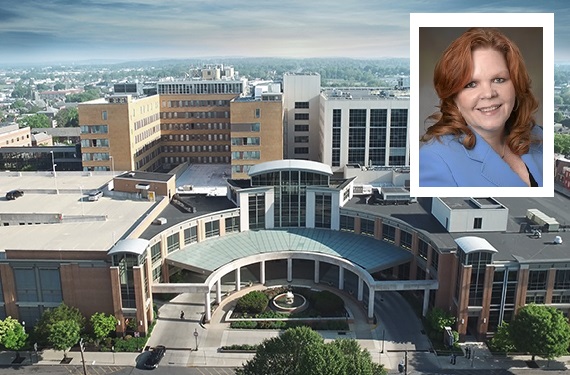
Penn Medicine Lancaster General Health, in partnership with the city of Lancaster, has received a state grant for a project to make Lancaster a "trauma-informed community."
Related: Dan Jurman works to make Pa. a trauma-informed state
The $299,804 grant, which LG Health announced this week, comes from the Pennsylvania Commission on Crime & Delinquency. It is one of 30 grants totaling $7.5 million awarded earlier this year for community violence prevention and reduction. The maximum award was $300,000.
"We are very excited about this opportunity," said Mary LeVasseur, LGH health promotions specialist.
The grant-funded project will run through March 2023. It will build on work the city has already done "from a trauma-informed lens," LeVasseur said, and will include the following:
- Hire a city trauma-informed specialist
- Synthesize strengths of current initiatives
- Listen to city employees and residents to identify gaps and develop new ideas and solutions
- Provide training and build awareness of protective and adverse childhood experiences (PACES) and their influence on health and wellbeing.
- Facilitate work groups in partnership with city departments and residents to implement program and policy changes.
"The opportunity to work with Penn Medicine and Lancaster General on becoming a trauma informed community will strengthen our work both inside city government and in our neighborhoods," Mayor Danene Sorace said.
In 2020, Gov. Tom Wolf established the Office of Advocacy & Reform, headed by executive director Dan Jurman, and authorized it to develop a plan to make Pennsylvania a trauma-informed state. The office put together a task force and released the plan last July.
About trauma informed care
"Trauma is defined as lasting emotional and physical results of an event, series of events, or circumstances that can create biologically based responses with long-lasting, adverse effects on a person’s learning, relationships, functioning, and well-being.
"Trauma can stem from a variety of personal experiences such as unhealthy relationships, poor mental or physical health, child abuse, domestic violence, or crime. Trauma can also affect an individual whose circumstances or identity subjects them to larger community challenges like poverty, racism, disasters, or a public health crisis like we are currently experiencing through COVID-19.
"The effects of this trauma can begin in childhood and extend across a person’s lifespan, and consideration of an individual’s experience with trauma must be built into systems that provide care and supportive services so we can truly meet a person’s specific needs."
Source: "Wolf Administration Discusses Effects of Trauma, Highlights Work to Embed Trauma-Informed Focus Across Systems," July 30, 2020
"A trauma informed community is focused on being inclusive and recognizing the strengths of the residents to create healing community. A trauma informed community strives to do no harm and recognizes past and ongoing traumas such as historic and structural racism, exclusion, isolation and the chronic, daily stressors of concentrated poverty and exposure to community violence."
Source: Penn Medicine Lancaster General Health





